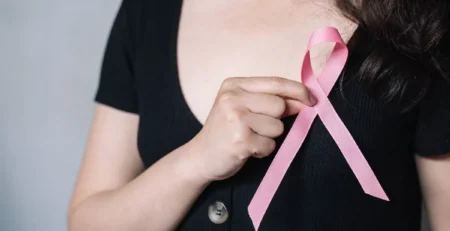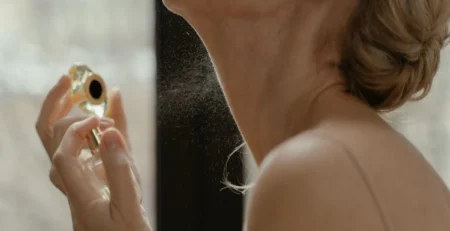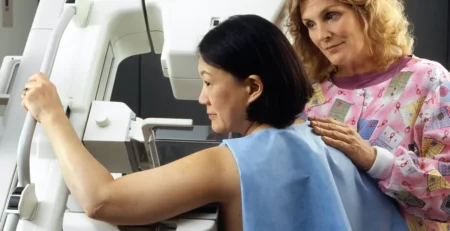Breast Cancer Risk Factor
Breast cancer is the most common type of cancer found in women, across India. Also though it can happen in men also, its incidence is higher in women only. Breast cancer may occur in the epithelial lining of the milk ducts. The cancer information programs have helped in decreasing the mortality rates in women.

Risk factors for breast cancer:
Family pre-disposition: If a family member has grown breast cancer in the past, or currently has breast cancer, women in that immediate family have a higher risk for breast cancer.
Age: With years passing by, the risk of breast cancer rises. Most cases of breast cancer are detected in women over 40, though the number of younger women growing breast cancer is currently on the rise.
Reproductive and menstrual history: Women who experienced their first menstrual cycle before age 12, had their menopause after age 55, and/or never had children have raised the risk.
Bodyweight: People who are obese or overweight face a higher chance of acquiring breast cancer than those who weigh normal.
Diet: A high-fat diet raises the chance of breast cancer. Fat triggers the hormone estrogen that fuels tumor growth. Eat a low-fat, nutritious diet. Fill your food including lots of fruits and vegetables.
Alcohol consumption: Smoking cigarettes and drinking alcohol raise the risk of cancer.
Signs of breast cancer:
- Painless lump in the breast
- Dimpling of skin over the breast
- Rash or ulcer over the nipple
- In-drawing of the nipple or inverted nipple
- Blood stained discharge through the nipple
- Lump or fullness in the armpit
If any of these variations are found during self-examination, then one should discuss their Breast Surgeon. Please remember that early detection increases the chances of a complete cure.
How does the doctor diagnose breast cancer?
When you see a Breast Surgeon for a lump in the breast, he would check your breast completely. It may not always be possible for him to say what the lump is? He may go some tests to be sure about the character of the lump.
The tests commonly used are –
Fine Needle Aspiration Cytology (FNAC) or biopsy: This includes taking out a few cells from the lump with a thin needle and examining them under a microscope.
Mammography: This is a special type of X-ray of the breast to identify any unusual growth in the breast. It provides the oncologist to assess the nature of the tumor in the affected breast and ascertain whether there is any abnormality in the other breast.
Other tests: The Breast Surgeon may also ask for other tests like a chest X-ray, abdominal sonography, bone scan, and PET scan. These are wanted to see if cancer has spread in the rest of the body.
What are the various treatment options?

The breast surgeon chooses the treatment modality after many factors like stage & pathology of cancer and your overall health status. Hence a couple of patients in the same stage may receive several treatments. The available treatment options are:
- Surgery: There are various surgical methods such as lumpectomy, mammaplasty, tissue expansion, lymph node dissection, & mastectomy. Lumpectomy is also called breast conversation operation or partial mastectomy. The above operations in combination with breast remodeling surgery can help women to develop the look of the breast.
- Radiotherapy: can be delivered before or after the operation. The program or regimen for radiation therapy (radiotherapy) is determined, usually given every day for a set number of weeks. Based on the extent of exposure wanted, there are partial breast irradiation, intensity-modulated radiation therapy.
- Systemic therapy: Early and locally advanced breast cancer are handled with systemic therapy which is of 3 types: chemotherapy, hormonal therapy, and targeted therapy.
- Chemotherapy: is the use of anticancer drugs to kill cancer cells. A chemotherapy regimen consists of a particular number of cycles over a set period of time.
If you have any problems with your own treatment don’t be afraid to ask your doctor. It is always better that you make a list of your queries before you see the doctor. The procedure differs with stage, age, pathology, and other factors. Hence, do not compare your treatment with others. Ensure that you are thoroughly counseled regarding surgical options – chemotherapy, and radiotherapy.
When to meet breast surgeon?
Any cancer can be cured completely if it is diagnosed early. Therefore if a person notices any type of symptoms he/she should meet a breast cancer specialist. Dr. Swati Suradkar has great experience in breast surgery.



